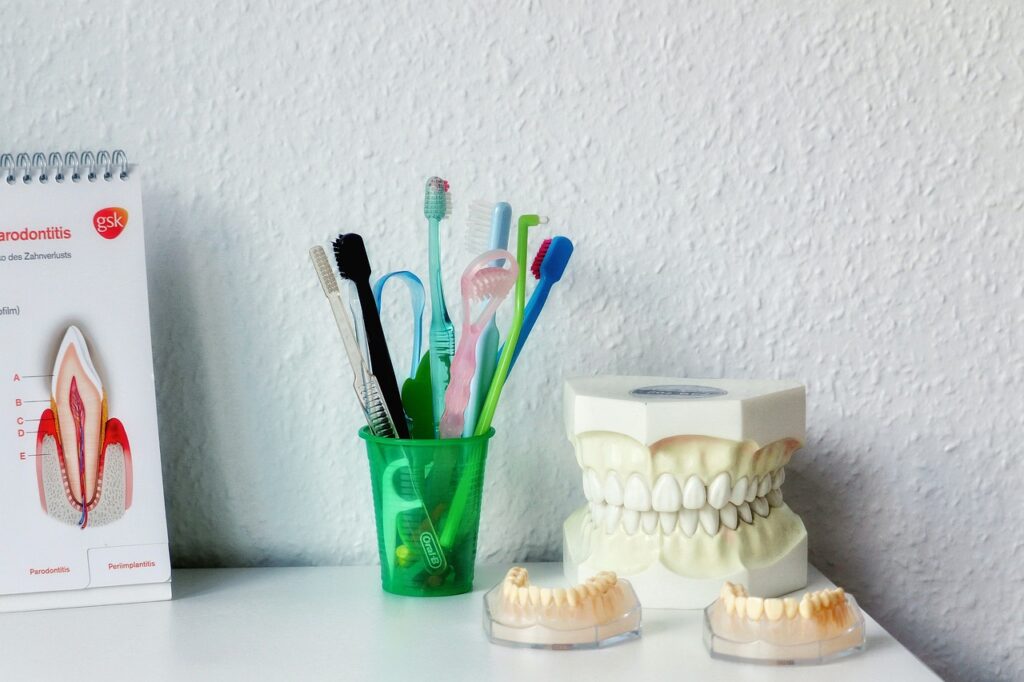In the domain of oral health, general dentistry plays a pivotal role. It encompasses a wide array of services and procedures, all aimed at helping you maintain a healthy mouth and improve your overall health. But many patients grapple with certain critical questions concerning their dental care and hygiene. From understanding the frequency of dental visits, to recognizing signs of gum disease and cavities, choosing the right kind of fillings, improving home oral care, and managing dental anxiety, these are queries that demand clear answers. Let’s explore them further for a thorough understanding of general dentistry.
Understanding General Dentistry
In the wide domain of medical science, general dentistry stands as one of the most fundamental specialties. This field is primarily focused on the prevention, diagnosis, and treatment of a broad range of conditions and disorders affecting the teeth, gums, jaw, and face. An essential aspect of general dentistry is its commitment to dental health and oral hygiene, promoting wellness that extends beyond the oral cavity.
General dentistry encompasses several sub-disciplines, including pediatric dentistry, geriatric dentistry, and cosmetic dentistry. Each of these fields caters to specific demographics or aesthetic needs. However, they all share the common goal of maintaining and enhancing dental health and oral hygiene.
A general dentist is often the first line of defense against dental issues. They conduct routine check-ups, teeth cleaning, fillings, and other non-surgical treatments. They also play an important role in educating patients about effective oral hygiene practices.

Importance of Regular Dental Visits
Regular dental visits are paramount to maintaining ideal oral health. They not only provide an opportunity for professional cleaning to support your daily oral hygiene practices but also offer preventive care that can save you from potential dental issues.
- Early Detection of Dental Problems: Regular check-ups allow dentists to diagnose oral health issues like gum disease, cavities, or oral cancer at an early stage. Early detection can lead to simpler and less costly treatment.
- Professional Cleaning: Even with diligent brushing and flossing, plaque can build up and harden into tartar, which can only be removed with professional tools. Regular dental visits guarantee your teeth get this necessary deep cleaning.
- Preventive Care: Beyond addressing immediate concerns, dentists also offer advice on how to prevent future problems. This could include personalized recommendations for oral hygiene routines or dietary changes.
Common Procedures in General Dentistry
While consistent dental visits serve as a cornerstone for maintaining oral health, they often encompass a range of common procedures that are integral to general dentistry. These procedures are essential for diagnosing, treating, and managing overall oral health.
One of the most prevalent procedures is dental cleanings, which involve removing plaque and tartar that have built up on the teeth. This preventative measure is vital to avoid cavities, gum disease, and other oral health issues. Dentists recommend having dental cleanings at least twice a year to maintain good oral hygiene.
Fillings are another common procedure in general dentistry. Fillings types vary based on the severity of the tooth decay and the patient’s personal preference. The most common types of fillings include amalgam, composite, and porcelain. Amalgam fillings are known for their durability and are typically used for molars. Composite fillings, on the other hand, are tooth-colored and blend seamlessly with the natural teeth, making them a popular choice for front teeth. Porcelain fillings offer a balance between durability and aesthetics.
Regular dental visits and these common procedures form the backbone of general dentistry, playing a significant role in maintaining overall oral health.
How to Prepare for Your Visit
Preparation is key when getting ready for a dental appointment. Proper readiness not only maximizes the benefits of your visit but also allows your dentist to provide the best possible dental care. Here are a few steps you can take as part of your appointment checklist.
- Maintain Good Dental Hygiene: Regular brushing and flossing help reduce the buildup of plaque, making your dentist’s job easier and your dental visit more efficient. Always brush and floss before your appointment.
- Gather Your Medical Information: Keep track of any new medications, health conditions, or allergies that have developed since your last visit. This information is essential for your dentist to provide safe and effective treatment.
- Plan Your Questions in Advance: If you have any concerns about your dental health or specific treatments, jot them down before your visit. Having a list ready can guarantee you don’t forget to ask important questions.
Dealing With Dental Anxiety
Despite the significant importance of regular dental visits, many individuals struggle with dental anxiety, a common problem that can deter them from seeking necessary care. The fear of pain, negative past experiences, or even the sterile smell of the dental practice can trigger this anxiety, often resulting in delayed or missed appointments.
To manage dental anxiety effectively, coping strategies play an essential role. To begin with, communication is key. Patients should express their fears to their dentist, allowing the dental team to adapt the treatment accordingly and provide reassurance. Additionally, distraction methods such as listening to music or focusing on visual aids in the room can divert attention from the procedure.
In addition, relaxation techniques are often beneficial. Deep breathing exercises can help to lower heart rate and promote a state of calm, while guided imagery can create a mental distraction from the anxiety. Progressive muscle relaxation, which involves tensing and then relaxing different muscle groups, can also alleviate physical symptoms of stress.
Frequently Asked Questions
What Are the Potential Risks of Neglecting Dental Health?
Neglecting dental health can lead to serious issues such as tooth decay and gum disease. Potential risks also include chronic bad breath, tooth loss, and more severe health complications like heart disease and diabetes.
How Do General Dentists Differ From Orthodontists or Periodontists?
General dentists provide primary dental care, focusing on overall oral health. Orthodontists specialize in tooth alignment and jaw issues, while periodontists treat gum-related conditions. Each plays a unique role in extensive dental healthcare.
What Kind of Training and Education Does a General Dentist Undergo?
A general dentist undergoes extensive dental education, typically comprising of a four-year undergraduate degree, followed by four years of dental school. Training requirements include hands-on experience and passing national and state licensing exams.
Can General Dentistry Procedures Help Improve My Overall Health?
Yes, general dentistry procedures can markedly improve your overall health. Regular dental care promotes good oral hygiene, which is closely linked to systemic health, thereby reducing the risk of cardiovascular diseases and other health issues.
Does Dental Insurance Typically Cover General Dentistry Procedures?
Yes, most dental insurance plans typically cover general dentistry procedures. Coverage often includes preventive care benefits such as routine check-ups, cleanings, and x-rays. However, plan specifics vary, so it is crucial to review your particular policy.
